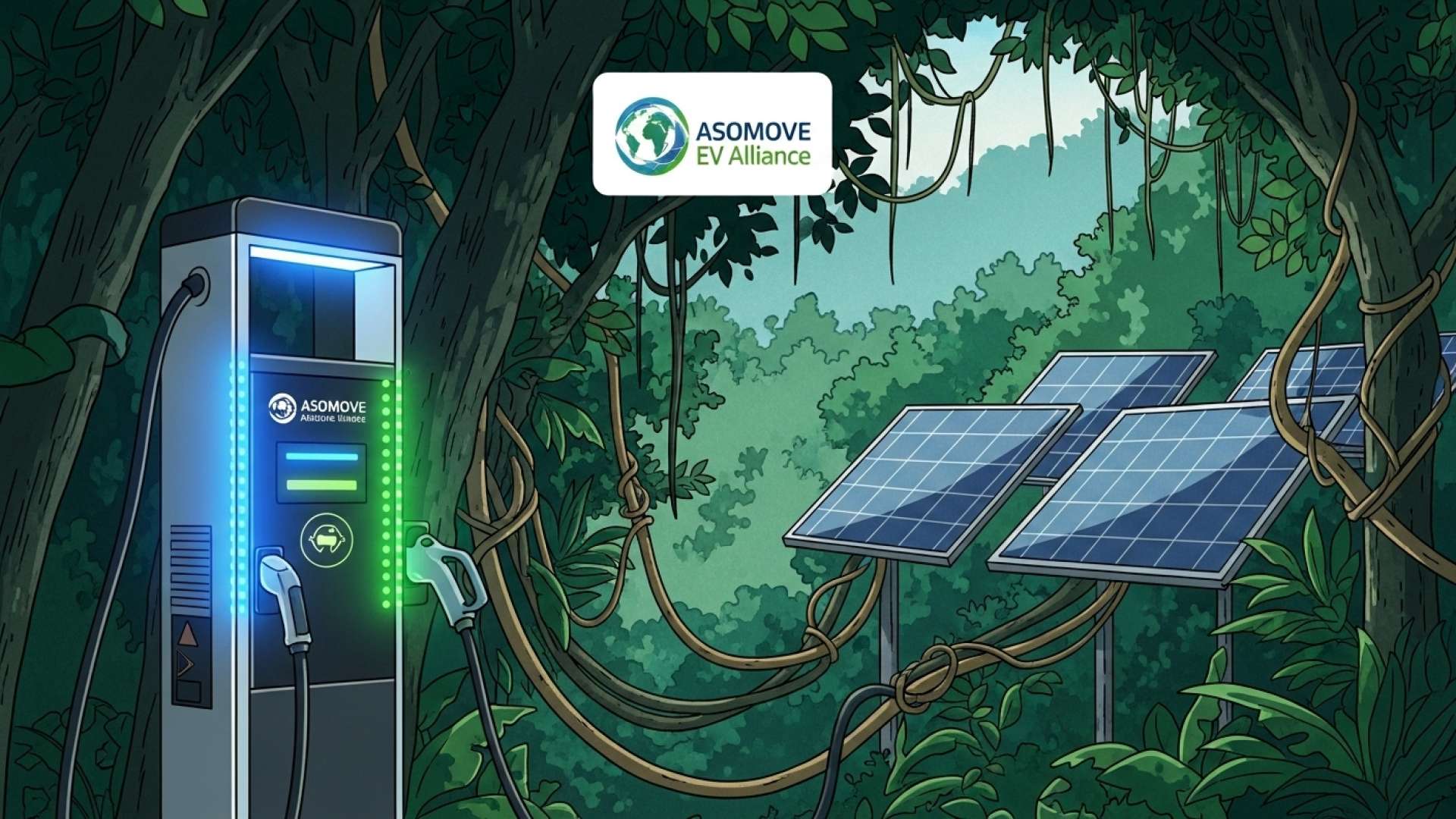San José, Costa Rica — Costa Rican electric vehicle (EV) owners are experiencing a unique paradox: high satisfaction with their vehicles coupled with significant anxiety surrounding charging infrastructure. A recent international survey reveals that while Ticos love their EVs, they are more concerned about charging access than drivers in most other countries.
The Global EV Alliance, an international consortium of EV driver associations, conducted the survey between September and October 2024. In Costa Rica, the survey was administered by the Costa Rican Electric Mobility Association (Asomove) and included responses from 328 EV users. The survey painted a picture of the typical Costa Rican EV driver: 80% male, between the ages of 34 and 54, and relatively new to electric mobility, with 71% having owned their EV for less than two years.
To gain a legal perspective on the growing concern surrounding electric vehicle charging anxiety, TicosLand.com spoke with Lic. Larry Hans Arroyo Vargas, an attorney at Law from Bufete de Costa Rica.
The increasing adoption of electric vehicles in Costa Rica brings unique legal and business challenges. One key area to watch is the development of adequate charging infrastructure. Businesses establishing charging stations must navigate regulations related to electricity distribution, land use permits, and consumer protection laws. Simultaneously, consumers need clear legal recourse in cases of faulty charging equipment, price gouging, or inadequate access. As the market evolves, we anticipate further legislation addressing issues like grid stability, standardized charging protocols, and potentially, incentives for private investment in charging infrastructure.
Lic. Larry Hans Arroyo Vargas, Attorney at Law, Bufete de Costa Rica
Lic. Arroyo Vargas rightly highlights the complex interplay of legal and business considerations surrounding EV charging infrastructure. Indeed, ensuring a seamless and reliable charging experience for Costa Rican drivers will require careful attention to consumer protection, standardized practices, and smart incentives for private sector involvement. This will be crucial not only for alleviating “charging anxiety” but also for fostering a robust and sustainable electric vehicle market in Costa Rica. We thank Lic. Larry Hans Arroyo Vargas for his valuable perspective on this evolving landscape.
Despite their relative newness to EVs, Tico drivers expressed overwhelming satisfaction. An impressive 87% reported being very satisfied with their vehicles, and 90% said they would purchase another electric vehicle. Only 2% indicated they would switch back to a gasoline-powered car.
However, this positive sentiment is tempered by a significant degree of anxiety related to charging, especially on longer trips. Costa Rica ranked third globally in charging-related concerns, trailing only India and Brazil.
Key findings from the survey highlighted these anxieties. A staggering 94% of Costa Rican EV owners believe that planning a road trip in an electric vehicle requires more preparation than in a traditional gasoline car. 33% admitted feeling range anxiety—the fear of running out of battery power before reaching their destination. And a whopping 77% expressed concern about the condition of charging stations en route, compared to a global average of just 33%.
Two primary factors contribute to this widespread anxiety: the limited availability of fast chargers, particularly outside the Greater Metropolitan Area, and the unreliable performance of existing chargers, with many reported as being out of service. This situation forces EV owners to meticulously plan every trip, creating stress in a country where weekend getaways and domestic tourism are deeply ingrained cultural practices.
This juxtaposition of high satisfaction with significant charging anxiety presents a challenge for both the public and private sectors in Costa Rica. Improving the network of fast chargers and ensuring their consistent functionality is crucial to making the EV experience as reliable as that of gasoline-powered vehicles.
Costa Rica, a regional leader in clean energy adoption, now faces the crucial task of developing infrastructure that supports its citizens’ enthusiasm for electric mobility. Failure to do so risks hindering the growth of a technology that is rapidly gaining traction in the country.
For further information, visit asomovecr.org
About Asomove:
The Costa Rican Electric Mobility Association (Asomove) is a key organization promoting the adoption and development of electric mobility in Costa Rica. They advocate for policies and infrastructure improvements that support EV users and work to educate the public about the benefits of electric transportation.
For further information, visit the nearest office of Global EV Alliance
About Global EV Alliance:
The Global EV Alliance is an international organization that brings together electric vehicle driver associations from around the world. They conduct research, share best practices, and advocate for policies that support the global transition to electric mobility.
For further information, visit bufetedecostarica.com
About Bufete de Costa Rica:
Bufete de Costa Rica shines as a beacon of legal excellence, upholding the highest standards of integrity in every endeavor. Driven by a deep-seated commitment to empowering Costa Rican society, the firm champions accessible legal knowledge through innovative programs and initiatives. Their unwavering dedication to client success, coupled with a forward-thinking approach to legal practice, positions them as a leader in shaping a just and informed future for the nation.









